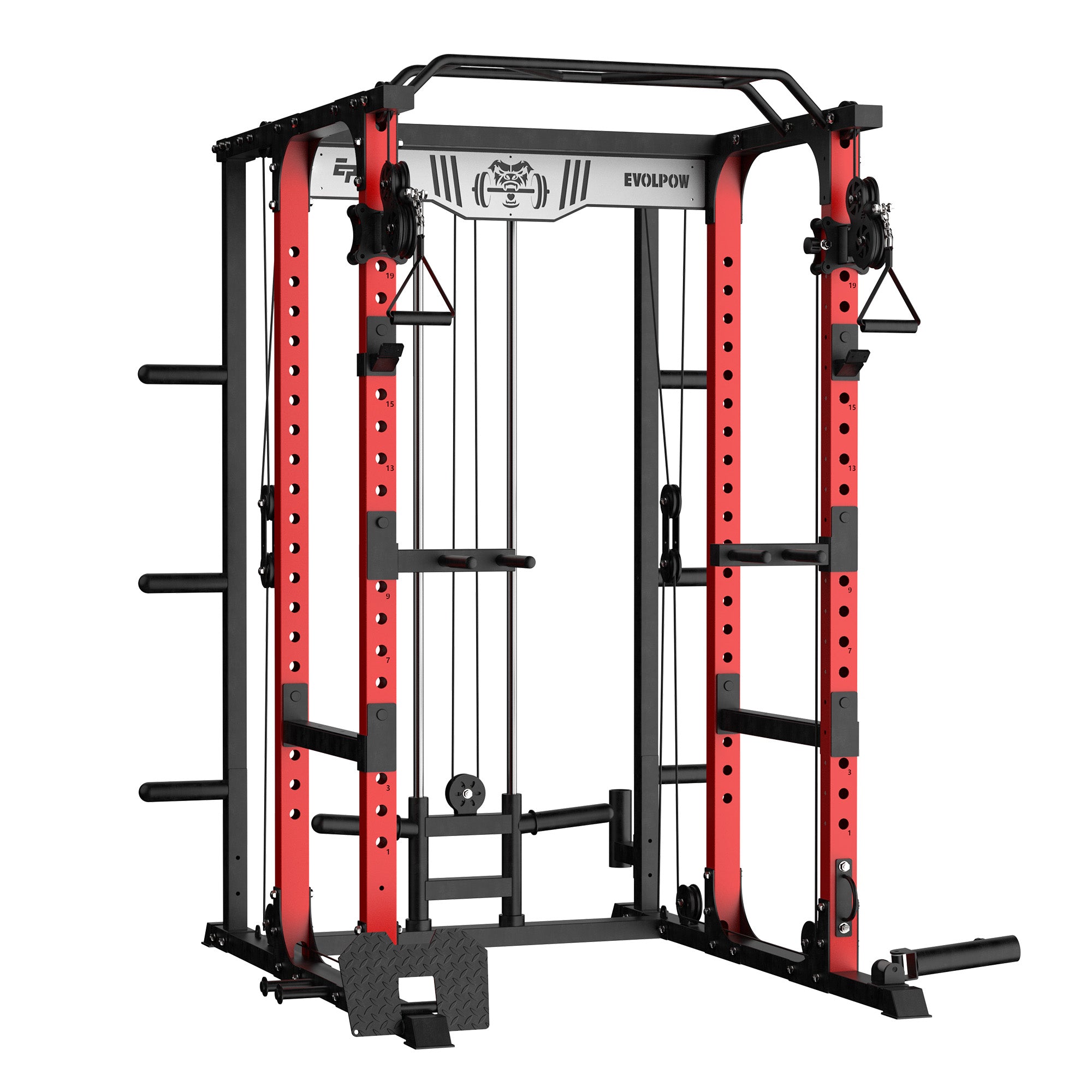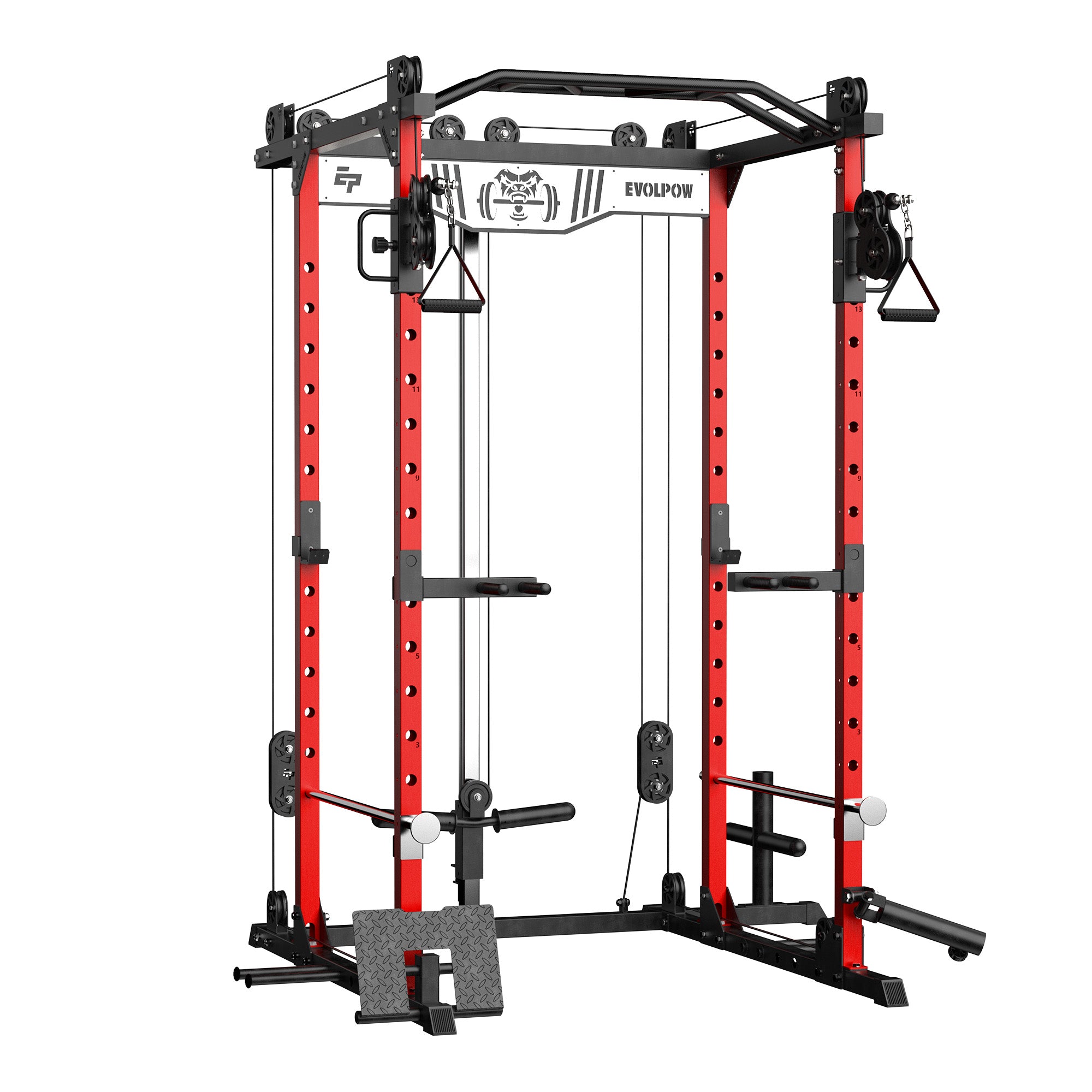When it comes to creating a home gym or expanding your fitness equipment collection, selecting the correct weight plates is critical. However, with so many options available, achieving the ideal combination of quality and affordability can be tough. In this post, we'll look at how to select weight plates that fit your budget while maintaining longevity and performance. Whether you're an experienced lifter or just getting started, knowing the essential elements can help you make an informed selection and get the most out of your training routine.
What Is a Weight Plate?
Weight plates are key parts of strength training equipment that provide resistance to barbells and machines. These round disks come in a variety of weights, ranging from 2.5 pounds to 45 pounds or more, allowing for gradual increases in intensity. They are built of materials such as cast iron, rubber, or steel, with each providing distinct advantages in terms of durability and noise reduction. Weight plates are not only functional, but also adaptable, as they may be used for a variety of workouts, ranging from simple lifts like squats and deadlifts to more sophisticated actions. Their importance in strength training makes them an essential component of any serious fitness program.
Let’s take a look at different material types of weight plates.
Different Materials of Weight Plates
Weight plates are typically made from various materials, including cast iron, rubber, and steel. Each material has its own unique characteristics and benefits, such as durability, noise reduction, and versatility. Understanding these differences can help you choose the right weight plates for your fitness needs.
-
Cast Iron: Cast iron weight plates have a traditional appearance and are known for their durability. They are a popular option for home gyms since they are frequently less expensive than alternative materials. If not properly maintained, they can be vulnerable to chipping and rusting.
-
Rubber: Rubber weight plates are valued for their shock-absorbing properties, which reduce noise and protect floors. They are ideal for environments where noise reduction is crucial, such as commercial gyms. However, rubber plates can be a little expensive than other options and may have an odor when new. However, after unpacking it, set it on the balcony or in another well-ventilated area to help remove some of the odor. The odor will gradually dissipate with time, so please use it with trust!

-
Steel: Steel weight plates are extremely robust and impervious to rust and corrosion, particularly when they are covered in a protective coating like chromium. They perform well over an extended period of time and have a sleek, polished appearance. They may, however, cost more than rubber or cast-iron plates.
-
Composite Materials: Weight plates made from composite materials combine the benefits of different materials, such as durability, noise reduction, and affordability. They offer a unique weightlifting experience but may be more costly than single-material plates.
When selecting weight plates, it's crucial to factor in your lifting style, budget, and personal taste. For those favoring a classic vibe, the robust and timeless appeal of cast iron plates may be ideal. Conversely, if a quieter and sleeker option is preferred, rubber-coated plates offer a more modern aesthetic. Your choice should align with your lifting goals and the atmosphere you wish to create in your workout space.
Different Types of Weight Plates
It's crucial to consider price and content of materials when selecting weight plates, but it's even more crucial to consider the kinds of plates you want to buy to meet your fitness goals.
-
Grip Plates
Grip plates, also known as Olympic grip plates, are weight plates with built-in handles for easier handling and loading on bars. Their unique grip handles make them easy to transport and operate without the need for any additional equipment. This design also enables for fast weight changes throughout workouts, increasing the effectiveness of training sessions. Grip plates are frequently built of sturdy materials such as cast iron or rubber, assuring both longevity and function. However, their incorporated handles limit the amount of weight that can be loaded onto a bar when compared to normal plates, which may be a disadvantage for advanced lifters looking for maximum weight capacity.

-
Bumper Plates

-
Iron and Steel Plates
How to Choose a Weight Plate Based on Your Budget?
When selecting weight plates based on your budget, it's essential to consider the cost-effectiveness of each option. Cast iron plates are typically the most budget-friendly choice, offering durability and functionality at a lower price point. Rubber-coated plates, while slightly more expensive, provide added benefits such as floor protection and noise reduction. Steel plates, although pricier, offer superior durability and resistance to rust and corrosion. Ultimately, the best choice depends on your budget and the specific features you prioritize in your weight plates.
Your Best Weight Plate Recommendation
EVOLPOW 2-Inch Decagon PEV Olympic Grip Weight Plates
EVOLPOW Grip Weight Plates are made of sturdy cast iron. It features an odor-free and easily maintained PEV coating, which contributes to a better user experience. This coating not only provides a clean and sanitary surface, but it also offers an extra layer of durability and safety, resulting in a long-lasting and secure workout equipment solution.
Each plate has two strategically positioned apertures with textured strips, ensuring a comfortable and solid grip during loading and unloading. Clearly branded in LB for fast and easy identification.
These weight plates provide variety by allowing for muscle-strengthening activities, endurance training, and increased flexibility and balance. A single weight plate is also useful for good warm-up activities.
EVOLPOW Color Low Bounce Bumper Plates Olympic Weight Plates
EVOLPOW weight plates are coated with excellent, high-density virgin rubber. This material is not only easier to handle than standard iron plates, but it also reduces noise and ground pressure.
You will feel more comfortable training with varying weights when you see vivid colors and legible weight markings! Do you want to give your gym some color? Just buy it!
FAQ
Q: Are cast iron weight plates a good budget-friendly option?
A: Yes, cast iron weight plates are a great budget-friendly option. They are durable and can last a long time with proper care. Additionally, they are usually less expensive compared to other types of weight plates, making them a popular choice for those looking to save money.
Q: Are rubber-coated weight plates worth the extra cost?
A: It depends on your needs. Rubber-coated weight plates are more expensive than cast iron plates, but they offer benefits such as floor protection and noise reduction. If you need these features and can afford the extra cost, rubber-coated plates may be worth it for you.
Q: Can I mix and match weight plate types to save money?
A: Yes, you can mix and match weight plate types to save money. For example, you could use cast iron plates for lighter weights and invest in a few rubber-coated plates for heavier weights. This way, you can enjoy the benefits of both types of plates without breaking the bank.
Reference
https://www.vervefitness.com.au/blogs/all/weight-plate-buying-guide#types_of_weight_plates
https://www.titan.fitness/blog/weight-plate-ultimate-guide.html
https://www.evolpow.com/products/evolpow-color-low-bounce-bumper-plates-olympic-weight-plates
https://www.evolpow.com/products/evolpow-2-inch-decagon-pev-olympic-grip-weight-plates






